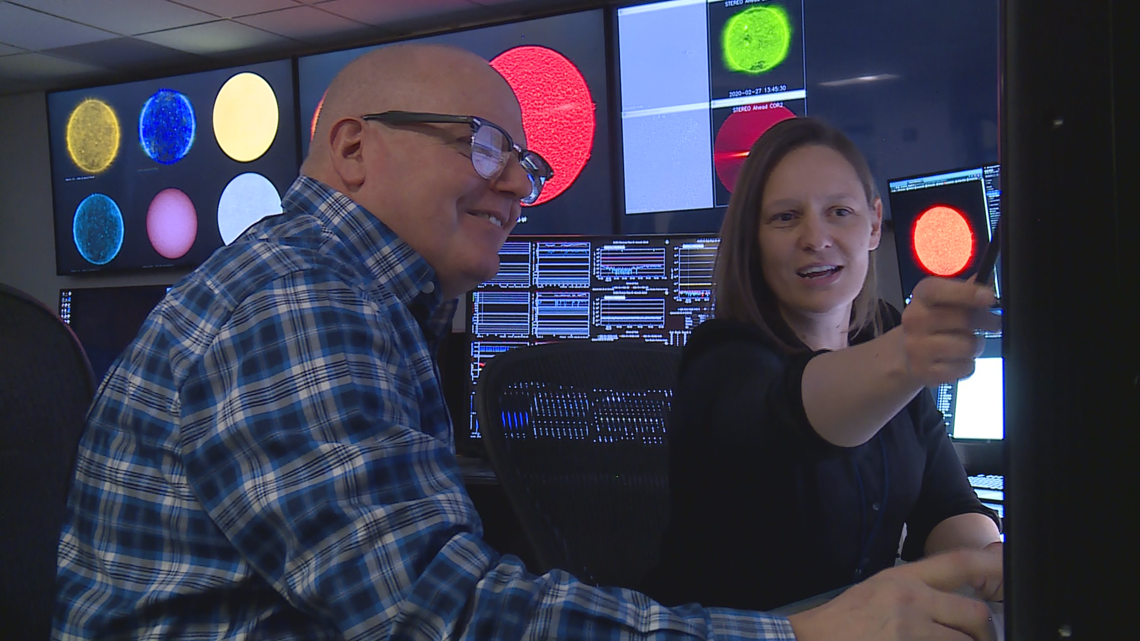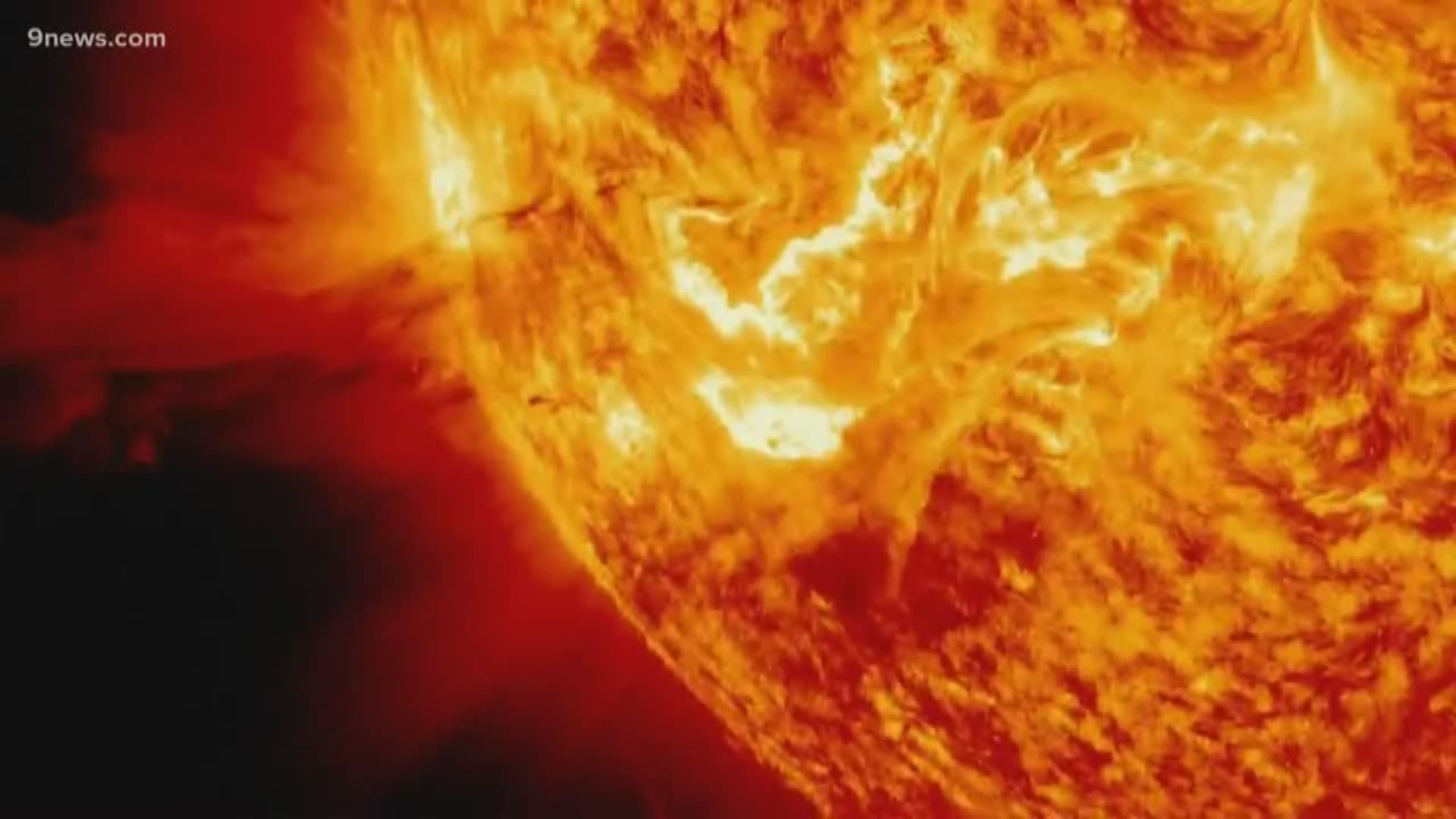BOULDER, Colo. — Scientists at the Space Weather Prediction Center (SWPC) in Boulder, Colorado, have come up with a way to keep you safer while you fly. A new advisory program will warn airplanes about incoming solar storms.
"For aviation we care about several different space weather impacts: navigation systems, communication systems, and much less frequently we sometimes see an elevated radiation environment at the flight levels of the planes," said Hazel Bain, Ph.D., a researcher at SWPC.
Bain said the new advisories will address those three impacts and be delivered quickly and directly to those involved in the aviation industry.
Space weather is basically any type of storm that originates from the sun, like solar flares, coronal mass ejections, and electromagnetic storms.
The advisories will be distributed on a system already set up to warn planes about volcanic eruptions -- an issue that has some parallel to solar storms.
“With volcanic ash, that’s not something that impacts the aviation industry very often but when it does happen you want to have information about where and when these impacts are being felt and how you can plan to move around them,” said Bain.
The SWPC office is located inside the National Oceanic and Atmospheric Administration's (NOAA) David Skaggs Research Center and is a branch of NOAA.


The day to day forecasting and operations are done by NOAA space weather forecasters, but there is also a research component to the SWPC. The University of Colorado Boulder’s Cooperative Institute for Research in Environmental Sciences (CIRES) completes this joint operation.
Besides the new aviation advisories, they also issue a general solar activity forecast twice a day, along with watches, alerts, and warnings for all the different types of solar storms. Anyone can sign up for these free alerts.
Space weather is not something the general public is normally aware of. Even the largest plasma storms may go completely unnoticed. Solar storms don't have the physical impact that earth storms have.
“Nobody is outside ducking from protons, nobody does that. Hail stones yes, protons not so much,” said space weather forecaster Rob Steenburgh.
He said the new system has been operational since November but they have not needed to issue any of the new advisories yet.
"The sun is in a low point of activity right now called solar minimum," said Steenburgh. "As we start to transition back towards solar maximum, the storms will increase, and we will need those advisories."
Most forecasts are indicating that the next solar cycle will begin sometime this year.

